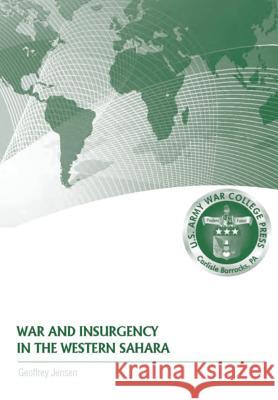War and Insurgency in the Western Sahara » książka
War and Insurgency in the Western Sahara
ISBN-13: 9781782663928 / Angielski / Miękka / 2013 / 104 str.
At a crucial crossroads between Africa and Europe, the Mediterranean and the Atlantic, and the "Arab World" and the West, Morocco has long had a special place in U.S. diplomacy and strategic planning. Since September 11, 2001, Morocco's importance to the United States has only increased, and the more recent uncertainties of the Arab Spring and Islamist extremism have further increased the value of the Moroccan-American alliance. Yet one of the pillars of the legitimacy of the Moroccan monarchy, its claim to the Western Sahara, remains a point of violent contention. Home to the largest functional military barrier in the world, the Western Sahara has a long history of colonial conquest and resistance, guerrilla warfare and counterinsurgency, and evolving strategic thought, and its future may prove critical to U.S. interests in the region.
At a crucial crossroads between Africa and Europe, the Mediterranean and the Atlantic, and the "Arab World" and the West, Morocco has long had a special place in U.S. diplomacy and strategic planning. Since September 11, 2001, Moroccos importance to the United States has only increased, and the more recent uncertainties of the Arab Spring and Islamist extremism have further increased the value of the Moroccan-American alliance. Yet one of the pillars of the legitimacy of the Moroccan monarchy, its claim to the Western Sahara, remains a point of violent contention. Home to the largest functional military barrier in the world, the Western Sahara has a long history of colonial conquest and resistance, guerrilla warfare and counterinsurgency, and evolving strategic thought, and its future may prove critical to U.S. interests in the region.











